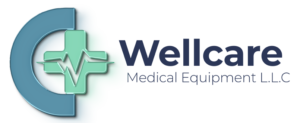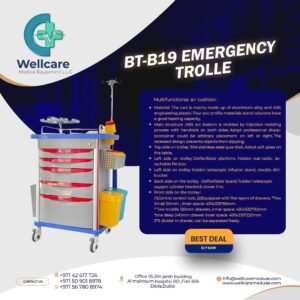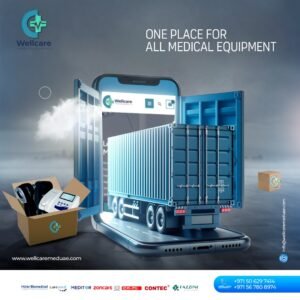In the UAE, home healthcare is gaining increasing significance as it addresses a range of critical needs within the healthcare system. By providing medical services directly in patients' homes, home healthcare offers the convenience of receiving care in a familiar and comfortable environment. This not only enhances patient satisfaction but also supports better health outcomes by allowing individuals to remain in a setting that is less stressful and more conducive to recovery. Home healthcare is particularly valuable for managing chronic conditions such as diabetes, heart disease, and respiratory illnesses. It allows for continuous monitoring and tailored treatment plans, which are essential for effective disease management. This ongoing care helps to prevent complications, improve symptom control, and ultimately enhances the quality of life for patients. Moreover, home healthcare services are cost-effective compared to hospital-based care, as they reduce the need for lengthy hospital stays and associated expenses, making it a more affordable option for long-term care. The ability to integrate home healthcare with telehealth technologies further amplifies its benefits. Telehealth facilitates remote consultations and monitoring, enabling healthcare professionals to stay connected with patients and make timely adjustments to treatment plans. This integration ensures that patients receive consistent and comprehensive care without the need for frequent travel to healthcare facilities. Additionally, home healthcare supports family involvement in the care process, allowing loved ones to participate in care planning and management. This involvement not only strengthens the support system for patients but also ensures that care aligns with family preferences and needs. It also helps reduce the risk of healthcare-associated infections, as patients are less exposed to potential sources of infection found in hospital settings. Overall, home healthcare in the UAE is a crucial component of the healthcare system, offering personalized, accessible, and cost-effective care. It aligns with global trends towards patient-centered care and supports the growing demand for services that cater to the specific needs of patients while enhancing their overall well-being. Well Care Medical Equipment LLC is a prominent supplier of home healthcare equipment in the UAE, addressing the increasing demand for home-based medical care. They offer a comprehensive range of products designed to cater to various patient needs, ensuring comfort and effective management of health conditions in the home setting. Their product lineup includes essential monitoring devices such as blood pressure monitors, glucose meters, and pulse oximeters. These tools enable patients and caregivers to track vital health metrics easily and accurately from the comfort of their home. Additionally, Well Care Medical Equipment LLC provides a variety of mobility aids, including wheelchairs, walkers, and canes, which are crucial for patients with mobility challenges. For respiratory care, the company supplies CPAP machines and nebulizers, which help manage conditions such as sleep apnea and respiratory disorders. They also offer oxygen concentrators for patients requiring supplemental oxygen. In terms of therapeutic equipment, Well Care Medical Equipment LLC provides items like heating pads, cold packs, and adjustable beds to enhance patient comfort and aid in pain management. Moreover, the company supplies personal care equipment such as shower chairs, commodes, and supportive cushions, designed to assist individuals with limited mobility and improve their quality of life. Emergency alert systems are also part of their offering, providing medical alert devices that allow patients to call for help in case of emergencies. Overall, Well Care Medical Equipment LLC plays a significant role in the UAE’s home healthcare sector, ensuring that patients have access to high-quality and reliable equipment to support their health and well-being at home.
Home healthcare equipment plays a crucial role in providing medical care in the comfort of one’s home, especially in regions like the UAE where the healthcare system is well-developed but there’s a growing emphasis on home-based care. This equipment can help manage chronic conditions, recover from illnesses or surgeries, and improve the overall quality of life for patients.
Importance of Home Healthcare Equipment in the UAE
Increasing Demand for Home Care: With an aging population and a rise in chronic diseases, more people in the UAE are opting for home-based care to avoid hospital stays and reduce healthcare costs.
Convenience and Comfort: Home healthcare equipment allows patients to receive medical care in a familiar and comfortable environment, which can improve adherence to treatment plans and overall satisfaction.
Cost-Effectiveness: Home care can be more cost-effective compared to prolonged hospital stays, making it a favorable option for both patients and healthcare systems.
Technological Advancements: The UAE is known for its focus on innovation and technology, and this extends to home healthcare. Advanced equipment allows for better monitoring and management of health conditions.
Personalized Care: Home healthcare equipment supports personalized care plans tailored to individual needs, which can lead to better health outcomes.
Types of Home Healthcare Equipment
Monitoring Devices:
- Blood Pressure Monitors: To track blood pressure levels.
- Blood Glucose Monitors: For diabetic patients to monitor glucose levels.
- Pulse Oximeters: To measure blood oxygen levels and heart rate.
Mobility Aids:
- Wheelchairs: Manual or powered options for patients with mobility issues.
- Walkers and Canes: To assist with balance and walking.
Respiratory Equipment:
- CPAP Machines: For patients with sleep apnea.
- Nebulizers: For administering medication to the lungs.
Therapeutic Equipment:
- Heating Pads and Cold Packs: For pain relief and reducing inflammation.
- Electric Beds: Adjustable beds for comfort and easier movement.
Personal Care Equipment:
- Shower Chairs and Commodes: For patients with limited mobility.
- Supportive Cushions and Mattresses: To prevent pressure sores and provide comfort.
Emergency Alert Systems:
- Medical Alert Devices: Wearable devices that allow patients to call for help in case of an emergency.
Infusion Pumps:
- IV Pumps: For controlled delivery of fluids and medications.
These types of equipment are essential for managing health conditions and ensuring a higher quality of life for patients receiving care at home.
What products does Well Care offer as a Home Healthcare Equipment supplier in UAE?
Well Care provides a wide range of home healthcare equipment, including mobility aids, hospital beds, oxygen concentrators, medical monitors, and daily care devices for patients at home.




